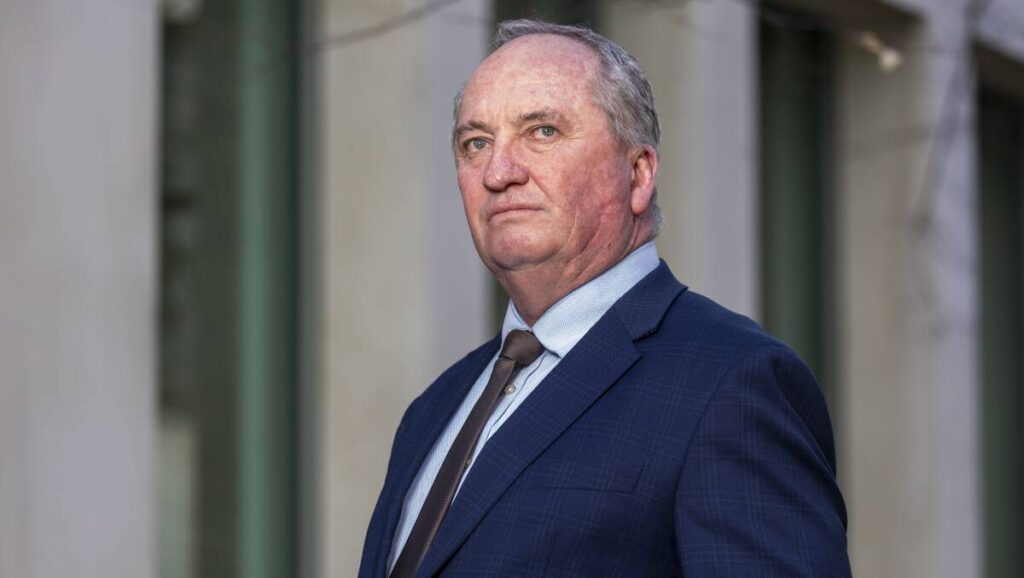
UPDATE: In a bold move, Nationals MP Barnaby Joyce is set to introduce a private member’s bill aimed at repealing Australia’s net zero emissions target, igniting fierce debate across the political landscape. Joyce’s actions come as residents in his regional New England electorate face crippling electricity costs, which he claims are pushing them to the brink.
Joyce stated earlier today, “We represent the poorest people, power bills they cannot afford,” underscoring the urgent plight of families and small businesses struggling to make ends meet. His comments reflect a growing sentiment among constituents who feel left behind by current energy policies.
The former deputy prime minister insists his opposition to net zero is not a denial of climate change but a call for realistic energy solutions. “I’m not here to say I deny climate change. It’s about what you’re doing now is not working,” he asserted. Joyce demands a focus on the “honest cheapest form of power,” whether that be coal, nuclear, or renewables—what he terms “intermittent power.”
This latest development also raises questions about internal Coalition dynamics. Opposition Leader Sussan Ley faces challenges as Joyce’s push for leadership speculation intensifies. When asked about the implications of Joyce’s actions, Ley dismissed concerns, stating, “Nobody’s getting under my skin.” However, the pressure mounts as the Coalition reviews its energy policies, led by spokesman Dan Tehan.
Joyce’s stance has prompted backlash from various political figures. Climate and Energy Minister Chris Bowen criticized the Coalition for “walking away” from its commitment to net zero, stating, “Both parties went to the election with a commitment to net zero.” He added that Joyce’s influence is steering the party away from crucial climate agreements.
In Canberra, Nationals senator Bridget McKenzie emphasized the necessity of recognizing climate change while addressing how to manage its challenges. Her comments reflect a broader discourse on balancing economic interests with environmental responsibilities. Senator Matt Canavan echoed this sentiment, arguing for a pragmatic approach that acknowledges the realities of job preservation and industry sustainability.
Joyce’s controversial proposal has drawn sharp criticism from environmental advocates. Amanda McKenzie, chief executive of the Climate Council, condemned the move as “disgraceful, delusional, and totally out of step with the Parliament and the country.” She warned that such a bill would face staunch opposition in Federal Parliament.
As the situation develops, all eyes are on the Coalition’s next steps and whether Joyce’s bill will gain traction. With the potential to reshape Australia’s energy landscape, the focus now shifts to how lawmakers will respond to the growing public outcry over energy affordability and climate action.
Stay tuned for more updates on this urgent story as it unfolds.





